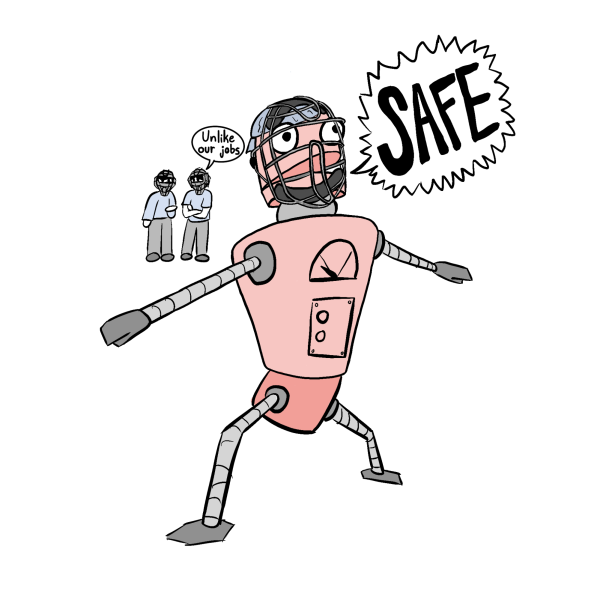“No ethical consumption” is no justification for spending
America is addicted to “things.”
Like many other Western countries, we are driven by an urge to consume and possess goods, regardless of whether we need them or not. Since World War II, America’s economy has been dependent on spending, with mass consumption driving our growth. Consumption has become synonymous with happiness, and the instant gratification of purchasing something outweighs the toll that went into producing it.
The phrase “there is no ethical consumption under capitalism” has gained fame from circling around platforms like TikTok and Twitter, losing its gravity with each use. “No ethical consumption under capitalism” means — or at least, is supposed to mean — that in a capitalist society, consuming goods or services will inherently cause harm.
The phrase calls to attention the intrinsic perpetuation of harm in capitalistic systems: companies promote socially and environmentally negative consequences to increase productivity, competition and product. The phrase originally dominated social media with the intent to put the onus on unethical corporations. Over time, the phrase warped into a justification for the excessive support for fast fashion companies. “No ethical consumption” has come to mean that since there is no way to do no harm, why bother trying to minimize harm at all?
Before disregarding the phrase entirely, it is important to think about why it was created in the first place. In a report, the International Labor Organization — which operates under the United Nations — stated that about 170 million children worldwide are employed in child labor and that their primary goal lies in satisfying Western consumerism. Amazon workers operate in physically and mentally demanding conditions without appropriate compensation. Apple and other tech giants plan the obsolescence of their technologies by designing them with the intent to fail. This elicits continuous upgrades of their models, resulting in thousands of tons of e-waste produced yearly.
Thus, there is a reason the maxim “no ethical consumption under capitalism” exists. Corporations like Amazon and Apple drive consumerism and promote the generation of waste, unsafe working conditions and the exploitation of vulnerable communities. Purchasing from these types of companies fuels this injustice, but it seems impossible to stop buying from them. Therefore, for some, it makes sense to just accept the way it is and continue existing patterns without regard for the societal implications.
Maybe all consumption is unethical under capitalism, but that doesn’t mean that all consumption is unethical on the same level. There are ways to mitigate your impact on the environment and others, even if you cannot eliminate it completely. Buying from sustainable clothing brands — and doing research to ensure those brands are actually sustainable — purchasing locally-sourced groceries and limiting Amazon usage all minimize the extent of the harm these corporations can do.
And, of course, one of the best ways to minimize individual harm is to just buy less. Focus on repairing existing items rather than buying new ones. Try purchasing clothes that you will wear once the initial trendiness has worn off. Look for higher-quality items, even if they might be a little more expensive, that will last longer. Shifting one’s focus from consuming to looking for quality will reduce waste and the amount of business big corporations get.
Of course, it is not fair nor correct to assume that everyone is capable of shopping sustainably. Many cruelty-free or environmentally friendly products are much more expensive, as they are made without the cheaper (but more harmful) methods that define most affordable products. With income inequality rising in America, more and more people must rely on companies such as Amazon to find affordable goods. Sustainability is not a viable option for everyone, and it would be ignorant to claim otherwise.
So, where does “no ethical consumption under capitalism” fit in all of this?
What it comes down to is that individuals who are privileged enough to buy sustainably, should. Not only that, but we should also advocate for changes in the regulation of corporations and environmental laws to increase the long-term sustainability of American goods and services as a whole. “No ethical consumption under capitalism” is not an excuse used to get out of trying: it is a call to arms, a reminder that those who are able should fight for systemic changes to minimize the risks of consumption for all.

My name is Ashwini Vivek (she/her) and I am an Opinion Writer for the Trinitonian! I am a senior Neuroscience major from Dallas, and I'm also involved...





